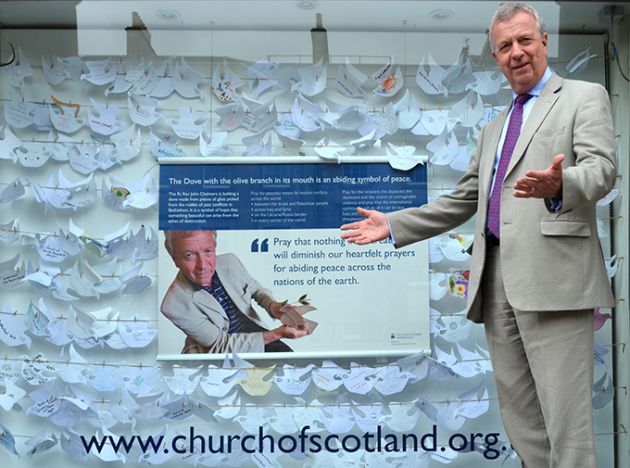Religious education key to defeating extremism says Church of Scotland head

Religious education has an important role in the school curriculum in combating violent extremism, the Moderator of the (Presbyterian) Church of Scotland says.
In his New Year message, Rev. John Chalmers says the issue of religious fundamentalism is one of the issues of greatest concern in the world today.
"Nothing is more dangerous than the radicalised mind and there is nothing worse than the indoctrinated child. We will not, however, defeat such extremism simply by confronting it across battle lines," said Chalmers.
"The frontline for winning this battle is education and the school is the place where young minds need to be introduced to the power of critical enquiry," he said.
Chalmers asked how else could a young person grow to make sound choices without access to the widest possible range of knowledge and how else could they learn tolerance unless introduced to a range of ideas.
However, the Humanist Society Scotland said it was in favour of religious study in schools, but not acts of worship.
There is growing concern about the number of young Britons travelling to the Middle East to take up arms with the jihadi group calling itself the Islamic State, The Scotsman newspaper reported.
The Humanist Society Scotland said it was in favor of religious study in schools, but not acts of worship, said The Scotsman report.
RESPECTING THOSE WHO DISAGREE
Chalmers noted that peace will only come when the means to respect those who people disagree with is tolerated on views of religion, philosophy and politics.
"Such tolerance, however, will not come by removing, as some desire, religious observance from the school curriculum; on the contrary what we should be doing is building on the strong tradition of religious reflection which is currently a part of the Scottish school environment," he said.
The Scotsman referred to Abdul Raqib Amin, who grew up in Aberdeen northern Scotland this year and appeared in a propaganda video for the group, which is responsible for the murder of British aid workers David Haines and Alan Henning.
Chalmers said he was not calling for proselytising within schools but, rather, a place in the curriculum for understanding other faiths.
"Every child needs to know about religious practice and it has to be shared in a context of open-mindedness and mutual respect, so I'll be doing all that I can to see that religious observance or time for reflection stays in the curriculum."
Earlier this year, both the Church of Scotland and the Scottish Humanist Society agreed the phrase "religious observance" had become outdated in non-denominational schools.
They said changing the legal definition to "time for reflection" could ease the concerns of parents, helping make schools more inclusive.
Gary McLelland, a spokesman for the Humanist Society Scotland, said in The Scotsman: "I share John Chalmers' broad call for more understanding about different faiths.
"Mr. Chalmers might want to bear in mind that religious faith is very much a minority pursuit among young Scots, with 74 per cent of 14- to 17-year-olds having no religious faith.
"Increasingly people of all ages are looking to reason, rationality and evidence to base their moral and social views on - not necessarily religious teachings.
"We are, though, completely supportive of comparative religious and philosophical study.
"The Humanist Society Scotland and Church of Scotland joined together at the start of this year to say that religious observance should be replaced with a more inclusive form of 'time for reflection' - something which is inclusive of all religions and belief traditions."